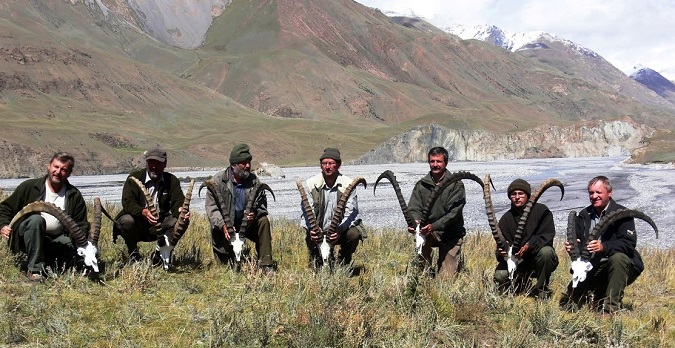A bill to ban hunting in Kyrgyzstan was narrowly defeated by Parliament last week, 56 to 52. Members of the Kyrgyz Parliament argued that the proposed law would lead to increased poaching and lost revenue from foreign hunters. The bill would have banned all hunting until 2030 throughout the country, except for some regulated predator control.
 Kyrgyzstan is a popular destination for SCI members and American and international hunters. A single Argali sheep license raises $6,000 USD for the government, and a full hunting trip can bring in $15,000–$20,000. The hunting industry represents 52 businesses and covers 14.4 million hectares of land in Kyrgyzstan.
Kyrgyzstan is a popular destination for SCI members and American and international hunters. A single Argali sheep license raises $6,000 USD for the government, and a full hunting trip can bring in $15,000–$20,000. The hunting industry represents 52 businesses and covers 14.4 million hectares of land in Kyrgyzstan.
The loss of this revenue would have undoubtedly led to increased poaching. The country documented 520 instances of poaching in the 2015-2016 season alone. Parliament stated that instead of a complete ban, they should work to control the poaching problem. The country is home to a wide range of wildlife, including snow leopards, lynx, and other endangered wildlife.
 In 2008 and 2009, the neighboring country of Tajikistan instituted a moratorium on Argali sheep hunting. Population surveys funded by SCI Foundation established that Argali numbers were stable and healthy. The research led to the immediate reopening of hunting and today the country has one of the largest concentrations of wild sheep in the world. SCI Foundation continues to fund the Tajikistan Argali Sheep Project.
In 2008 and 2009, the neighboring country of Tajikistan instituted a moratorium on Argali sheep hunting. Population surveys funded by SCI Foundation established that Argali numbers were stable and healthy. The research led to the immediate reopening of hunting and today the country has one of the largest concentrations of wild sheep in the world. SCI Foundation continues to fund the Tajikistan Argali Sheep Project.
SCI and SCI Foundation also played a major role in the USFWS’s 2015 positive enhancement finding for importation of Argali sheep hunted in Kyrgyzstan, Tajikistan, and Mongolia. The enhancement finding stated that hunting improves the survival of the species. Revenue raised is applied to conservation and benefits the livelihoods of local communities.

Establishing the science-based foundation for hunting programs and having a positive working relationship with central Asian governments make SCI and SCI Foundation’s work unique, effective, and invaluable. The organizations will continue to compile data on the sustainability of Argali populations and use this information to educate members of the Kyrgyzstan Parliament on the value of hunting.
